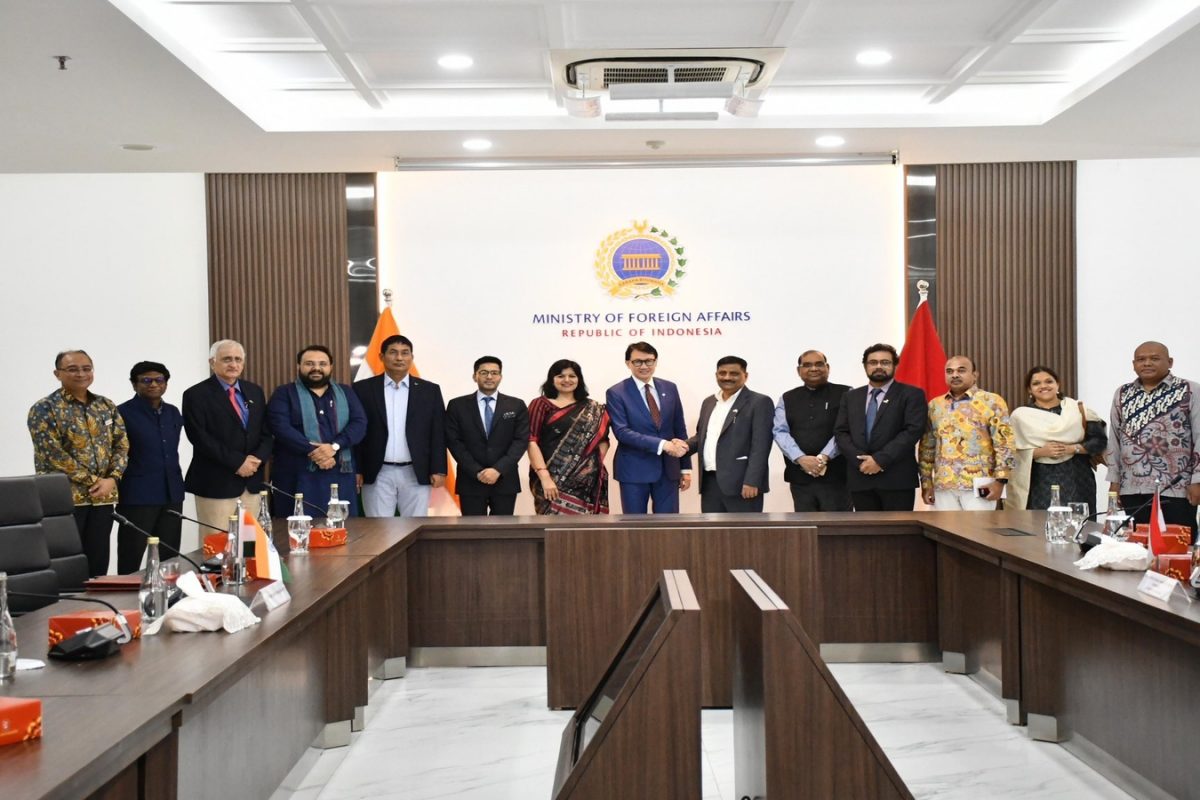

Following the deadly Pahalgam terror attack that claimed the lives of 26 individuals, India launched "Operation Sindoor" on May 7th, a retaliatory strike targeting terrorist infrastructure inside Pakistan and Pakistan-occupied Kashmir. In the wake of this operation, India has initiated a global outreach program to expose Pakistan's role in sponsoring terrorism. As part of this effort, India has dispatched all-party parliamentary delegations to numerous key nations, including members of the UNSC and future UNSC members.
Indonesia has emerged as a key partner in this endeavor, backing India's stance against terrorism. A delegation led by JDU MP Sanjay Kumar Jha recently visited Jakarta to reinforce India's position. Indonesian officials have voiced their support for India's zero-tolerance approach to terrorism, condemning it as an affront to humanity.
The Indian Embassy in Jakarta confirmed that the delegation met with high-ranking Indonesian officials, including Muhammad Husein Fadlulloh, Vice-Chairperson of the Committee for Inter-Parliamentary Cooperation, and Muhammad Rofiqi, Chairperson of the Indonesia-India Parliamentary Friendship Group. These meetings aimed to sensitize Indonesian leaders to India's firm commitment to combating terrorism.
Indonesia's support is particularly significant given its status as a country with a substantial Muslim population. This backing sends a strong message that terrorism cannot be justified under the guise of religion and that even Muslim-majority nations stand against it. Indonesia's stance also carries weight within the Organization of Islamic Cooperation (OIC), where it has previously blocked resolutions put forth by Pakistan that were critical of India's actions in Kashmir.
The delegation led by Sanjay Kumar Jha has been actively engaging with various nations, including Singapore, South Korea and Japan, to highlight the threat of cross-border terrorism emanating from Pakistan. During these interactions, the delegation has emphasized India's new, assertive strategy against terrorism, making it clear that India will respond decisively to any future attacks and will not differentiate between state sponsors and masterminds of terrorism.
Other all-party delegations are visiting nations across the globe to convey India's united message against terrorism. These delegations consist of senior MPs from various political parties, demonstrating a united front on the issue of national security. The initiative is coordinated by the Ministry of Parliamentary Affairs, with the aim of countering Pakistan's narrative on terrorism and emphasizing India's commitment to peace and security in the region.
The Indian government has made it clear that it has no interest in starting a war but believes that terrorist acts must not go unpunished. Operation Sindoor was a targeted response to the Pahalgam attack, aimed at dismantling terrorist infrastructure and preventing future acts of violence.
Through "Operation Sindoor Outreach," India aims to build a global consensus against terrorism and hold Pakistan accountable for its support of terrorist activities. Indonesia's support is a crucial step in this direction, underscoring the importance of international cooperation in combating this global threat. The initiative also seeks to reassure the international community that India's actions are aimed at maintaining regional stability and protecting its citizens from terrorism, not escalating tensions.